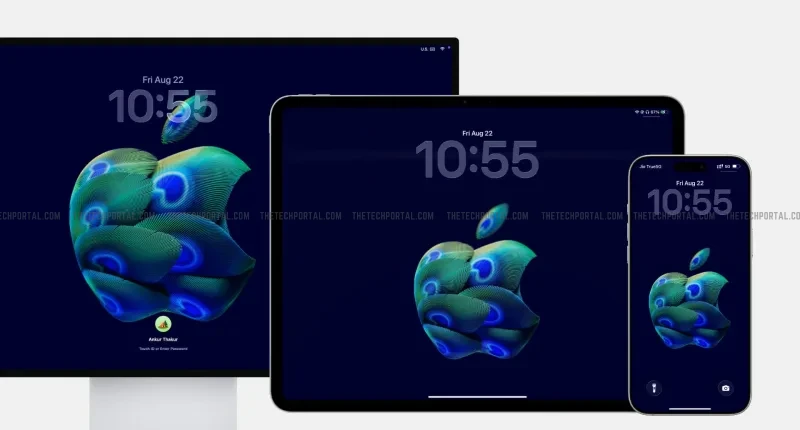Tech titan Apple aims to further cement its presence in India, and in this vein, the company is now opening two additional retail stores in the country. The Apple Hebbal store is set to open in Bengaluru on September 2, while Apple Koregaon Park will open in Pune on September 4, bringing the company’s official store count to four. This move comes just days before the global launch of the iPhone 17 series.
The new stores are designed to be more than just points of sale – they are a component of Apple’s brand-building efforts in a country where it previously relied heavily on third-party resellers. The Pune store is located in the KOPA mall in the Koregaon Park area, and its Bengaluru counterpart is located in the Phoenix Mall of Asia. Notably, the storefront barricades for both locations are adorned with a vibrant, peacock-inspired artwork, a localized design element that connects the new stores to India’s cultural heritage, a strategy the company has employed since its first two stores opened in Mumbai and New Delhi.
The decision to invest in direct-to-consumer retail seems to be an attempt by Apple to gain greater control over its brand perception and customer journey. For years, the company’s products were primarily sold through multi-brand retail chains and third-party stores, which often lacked the uniform experience and expert support that define the Apple brand. By opening its own locations, the company can ensure that every customer interaction, from initial product exploration to post-purchase service, aligns with its exacting standards. Each store will be staffed by a team of highly-trained Specialists, Geniuses, and Creatives, who are tasked with providing in-depth product knowledge and technical support.
Central to this approach is the “Today at Apple” program, a series of free, in-store workshops covering a range of topics from photography and music production to coding. These sessions are designed to educate consumers on the full capabilities of Apple’s ecosystem, creating a stronger bond between the user and the brand. In a market where brand loyalty can be fleeting, these high-touch services are a necessary investment to justify the company’s premium price tag. Furthermore, the stores will offer services like complimentary engraving on new devices and direct Genius Bar support, providing a level of care that its retail partners cannot match.
Still, the company’s overall market share remains relatively small, with the vast majority of consumers opting for more affordable devices from competitors. While Apple has successfully captured a leading position in the premium segment, its growth in the country is a long-term play that requires significant capital and strategic patience. The retail push is also a part of the company’s efforts to diversify its supply chain and increase local manufacturing in India. By expanding its production footprint, the company aims to reduce its reliance on other manufacturing hubs and mitigate the impact of tariffs, which can make its products even more expensive for local consumers. The success of this strategy will determine whether Apple can transition from a premium niche player to a major force in the market.
The Tech Portal is published by Blue Box Media Private Limited. Our investors have no influence over our reporting. Read our full Ownership and Funding Disclosure →






